House Democrats Have A Plan To Beef Up Obamacare
House Speaker Nancy Pelosi (Calif.) and other Democratic lawmakers will unveil plans on Tuesday to shore up the Affordable Care Act in order to make health insurance more affordable for consumers and reverse steps that President Donald Trump has taken to undermine the law.
A summary of this package of legislation provided by Pelosi’s office shows that it isn’t as sweeping or comprehensive as proposals favored by progressives to replace the current private health insurance system with a government-funded single-payer program and that it doesn’t include any form of public option plan that would compete with private insurance. But it does seek to address some of the Affordable Care Act’s main shortcomings.
“This is an expansive package of proposals that would make ACA coverage more affordable and reduce the number of people uninsured, but it is not a replacement for the far-reaching plans for universal coverage like Medicare for all,” Larry Levitt, senior vice president for health reform at the Henry J. Kaiser Family Foundation, told HuffPost. “With Democrats proposing to solidify and build on the ACA and the Trump administration still trying to repeal it, the health care battle lines for 2020 are pretty clear.”
None of the current proposals would prevent the later enactment of a single-payer Medicare for All plan. But Pelosi’s emphasis on preserving and improving the Affordable Care Act highlights the split between the Democratic establishment and progressive leaders, including presidential candidates like Sen. Bernie Sanders (I-Vt.).
Although the House speaker agreed to allow Medicare for All supporters to hold hearings on the issue this year, it’s notable that they are not scheduled for any of the committees with jurisdiction over federal health care programs, and Pelosi herself has expressed skepticism about the feasibility of single-payer.
The House Energy and Commerce Committee plans to meet Wednesday to prepare some of the leadership-backed bills for votes later this year, as well as to work on legislation aimed at increasing access to less costly prescription medicines.
But the chances that the House Democratic measures will become law in the short term are slim. Republicans retain control of the Senate, where Majority Leader Mitch McConnell (R-Ky.) has steadfastly resisted any attempts to bolster the existing insurance marketplace. And Trump has adopted a hostile posture toward the law at every turn. His latest budget proposal maintains the White House’s position against the Affordable Care Act.
On Monday, the Justice Department told a federal appeals court that the federal government agrees with GOP state officials and a lower-court ruling that the entire law should be thrown out on constitutional grounds. If that ruling stands against an effort by Democratic state attorneys general to protect the law, millions of people would lose coverage and millions more with pre-existing conditions could find themselves unable to obtain health insurance.
“While the Trump administration broadens its monstrous ambitions from destroying protections for pre-existing conditions to tearing down every last benefit and protection the Affordable Care Act provides, Democrats are putting forward new legislation to lower health insurance premiums and strengthen protections for America’s families,” Pelosi said in a statement Tuesday.
The top item on Pelosi’s agenda is beefing up the financial assistance available to low- and middle-income households who get their health coverage through the Affordable Care Act’s health insurance exchanges. The law provides tax credits to defray insurance premiums for people earning up to 400 percent of the federal poverty level, or about $49,000 a year for a single person and $100,000 for a family of four.
While those tax credits offer generous subsidies to people at the low end of that income scale, people at the higher end get little help and those who earn more than four times the poverty level get no assistance at all. Affordability has been an issue for those latter two categories of consumers since exchange coverage became available in 2014, and premiums have risen substantially since then.
House Democrats propose eliminating the cutoff at 400 percent of the poverty level and providing sufficient financial assistance to limit all exchange customers’ premiums to 8.5 percent of their annual incomes, based on the cost of a mid-level “Silver” insurance policy. The measure also would increase the subsidies provided to those with incomes up to 300 percent of the poverty level, or about $36,000 for a single person and $75,000 for a family of four.
Another part of the Democratic plan would provide funding to states to reduce premiums. Under this proposal, the federal government would offer $10 billion a year that states could use to give additional subsidies to consumers or establish a reinsurance program to reimburse insurance companies with the costliest customers so that insurers wouldn’t pass those costs on to the rest of their policyholders. Alaska, Minnesota and Oregon have already adopted reinsurance programs that have succeeded in reducing premiums.
Democrats also would eliminate the Affordable Care Act’s so-called family glitch, which has prevented otherwise eligible families from accessing subsidies if a single member of the household is offered health coverage by an employer, even if that employer doesn’t cover family members.
Most of the remaining elements of the package seek to reverse a plethora of actions the Trump administration has taken to weaken the health insurance exchanges.
House Democrats seek to block Trump’s moves to allow states to permit the sale of health insurance products that don’t adhere to the Affordable Care Act’s rules protecting people with pre-existing conditions and guaranteeing a minimum set of benefits. They also want to undo Trump’s policy of permitting the sale of short-term health insurance policies lasting up to year ― which also do not adhere to those ACA regulations.
The Democratic legislation would restore funding for health insurance enrollment outreach and assistance, which Trump deeply cut, and would provide new funding for states that establish their own insurance exchanges rather than use the federal HealthCare.gov system for enrollment.
The story has been updated with comment from Nancy Pelosi.
Related Coverage
Believe Republicans When They Say They're Coming After Your Health Care
What The Obamacare Fight Says About Nancy Pelosi
Obamacare Turns 9 Today, And Republicans Are Still Trying To Wreck It
Now Trump Wants Judges To Throw Out The Entire Affordable Care Act
Also on HuffPost




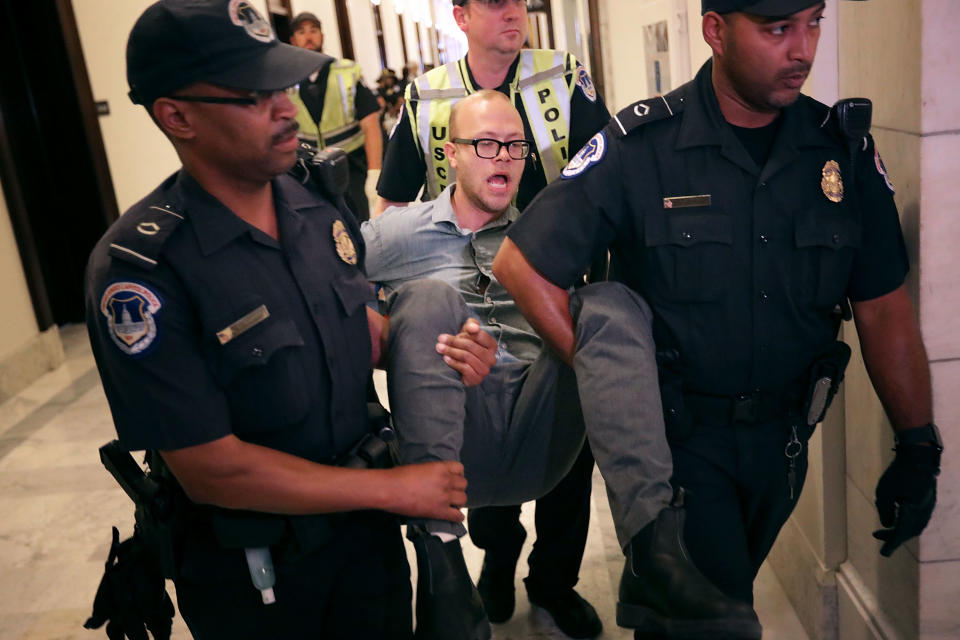
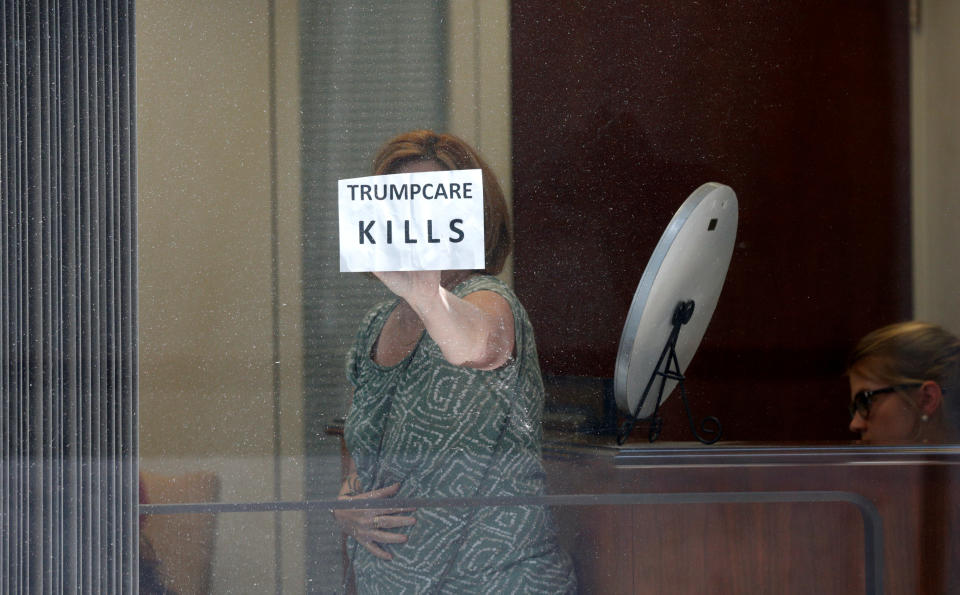
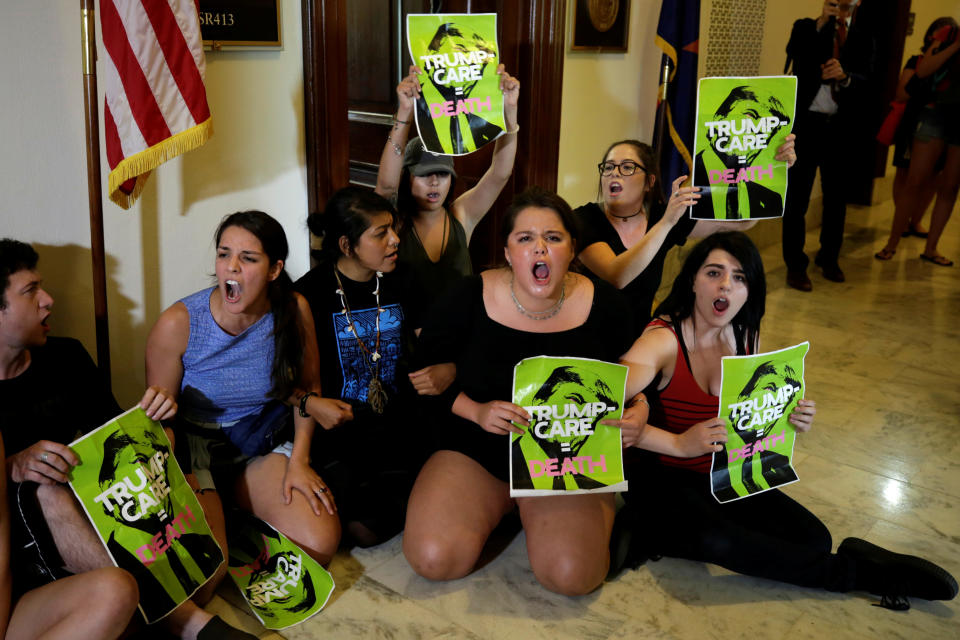
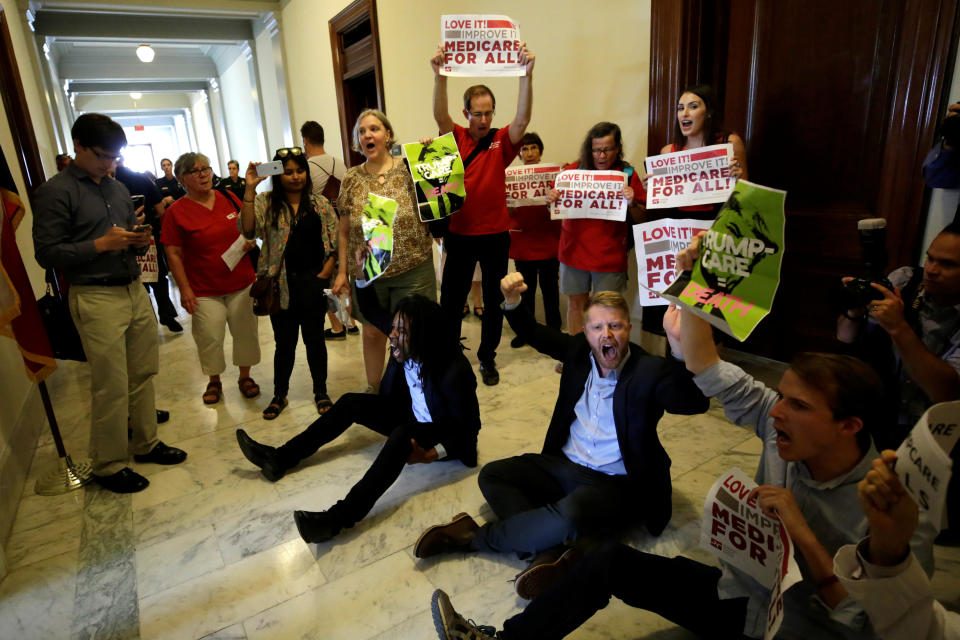
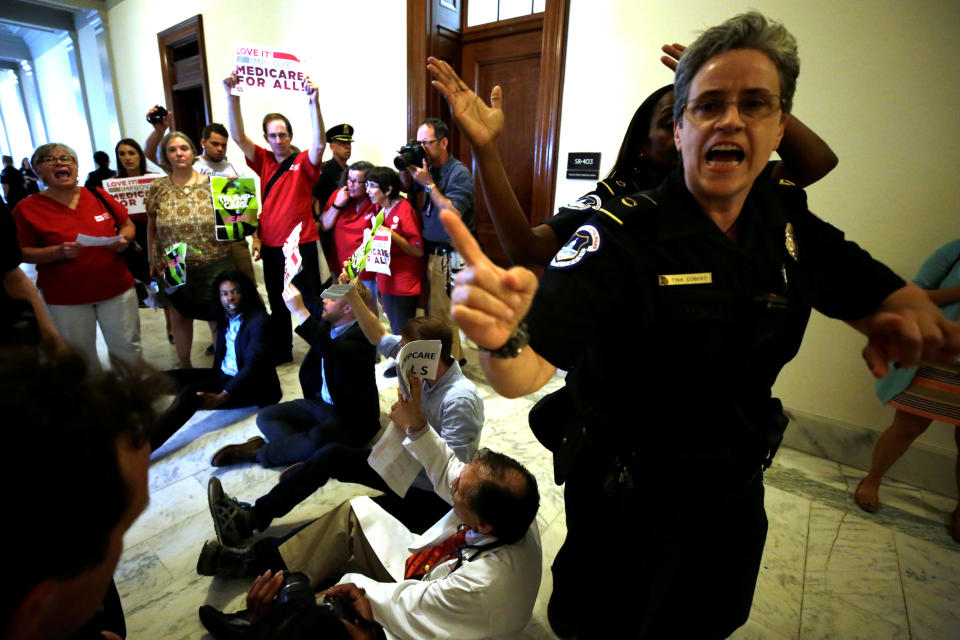

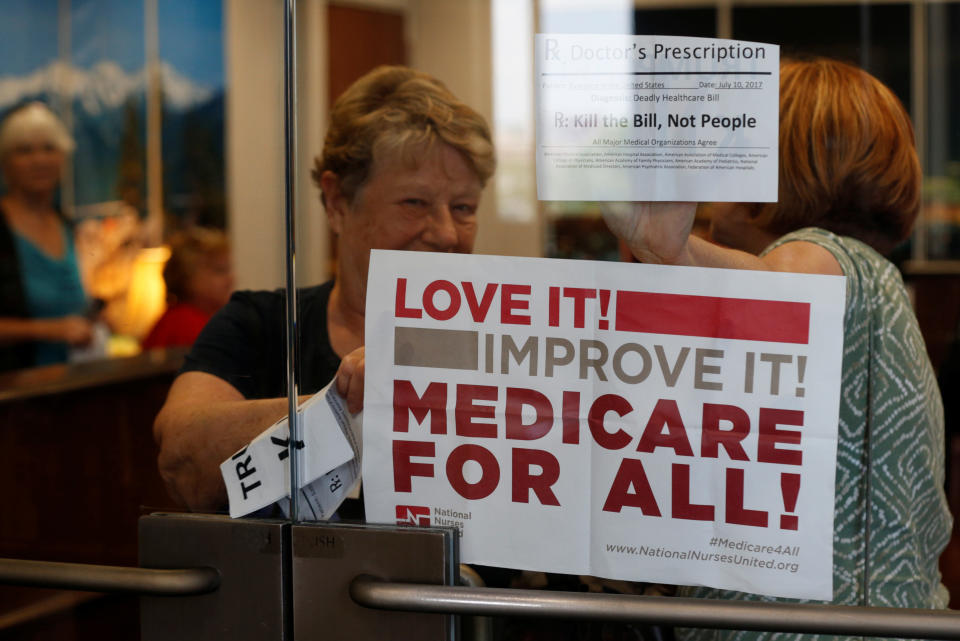
Love HuffPost? Become a founding member of HuffPost Plus today.
This article originally appeared on HuffPost.

